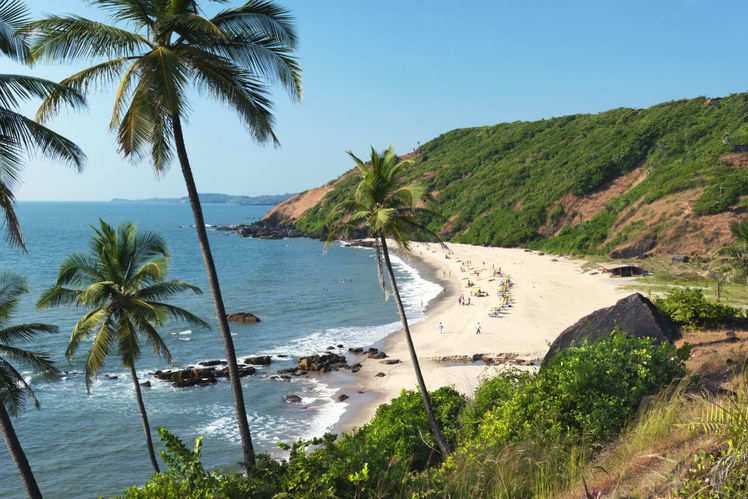by Adam Durnham
 |
| Goa in western India is known for its breathtaking beaches, well-preserved 17th century Catholic churches, and spice plantations. |
We know that the Roman Catholic religion is enchanting to many Indians who want to escape the caste system. It’s a very tolerant religion and accepting of many faiths. Whether you are a Hindu, Muslim, or Jew, Christians are bound to accept you for who you are and not because, or in spite of, your faith.
Why am I saying this?
Well, I lived in Goa during my early years, just like my father and grandfather before me. My father and grandfather were lucky and they used to regale me with stories when they could openly practice their faith. Sunday was a special day and everybody dressed really nicely for church.
After mass, they eat samosas or fish curry from vendors that litter the streets outside the church.
One can say Hindu is theoretically one of the most tolerant religions. That’s because it believes that whatever the journey is, the path still leads to the universal God. Hindus also believe that they should be allowed to practice their faith just as they accept that others can also believe in their own God in peace.
My father told me that right after Goa was annexed by India, there was a large exodus of Christians who left their homes in fear. He remembered friends and classmates suddenly gone the next day.
Portuguese Agents
They were branded as Portuguese agents and the heckling became ugly quick. Friends became enemies just because they had different faiths.
The agricultural reform program by Dayanand Bandodkar, Goa’s first chief minister, might have been implemented with the best intentions in mind. But what happened was that the Catholic landlords suddenly lost their lands. The tenants suddenly realized that they have the government on their side and used the whole force to displace the Catholic landlords. And I’m not talking here of huge plantations but rather small lands that their families owned for years. This also contributed to the mass migrations as the heirs of the landlords whose lands were taken away illegally by their tenants had no choice but to leave because they were not getting any justice.
Second class citizens
Ever since the annexation of Goa, things haven’t really gotten better. Nobody will admit it, but we Christians in this state have become second class citizens. How else can you explain the fact that no Catholic has been made chief minister in Goa for a long time? Or, even if they did, they wouldn’t last a year in their position. It seems like there’s this unwritten rule about that.
Also, this is clear when Konkani in Devnagiri script was legislated into an official state language. All Christians have been using the Roman script so they are immediately put into a disadvantage. This restricted us from getting government jobs, or jobs in general.
You can say that we can just learn Devnagiri, but that’s not really the point, is it?
My father’s faith was very strong even if at one point he had to go away for alcohol abuse treatment because the pressure was too much for him. I couldn’t blame him, of course. He lived during the glory days where Catholics were the majority in Goa. But he also saw the bad side when the Catholics have suddenly become second class citizens.
Strangely enough, he didn’t think to convince my mother to change her Hindu religion. They’ve been married now for more than 40 years and I’ve never seen them fight.
I and my four siblings were also free to choose which religion to follow. Both my father and mother didn’t bad mouth the other religion just because it’s different from theirs. My younger brother and I are both Catholics. The three others are Hindus. But we don’t talk about religion on the dinner table.
Don’t get me wrong. I still went to church on Sundays. In fact, I saw many of my friends there and we still eat and hang out after the mass.
In the same vein, I couldn’t turn a blind eye to the open persecution of religious minorities in India. This is influenced, in part, by the ruling Bharatiya Janata Party. There’s a creeping distrust between the Christians and the Hindus in the country and something has to be done about it or else it is likely to explode.
On my end, I can only continue to practice my faith. I see the glances, the smirks, and even open defiance going to and leaving the church. But I’ve never experienced violence. I wouldn’t be surprised if that were to happen but I hope not.

No comments:
Post a Comment